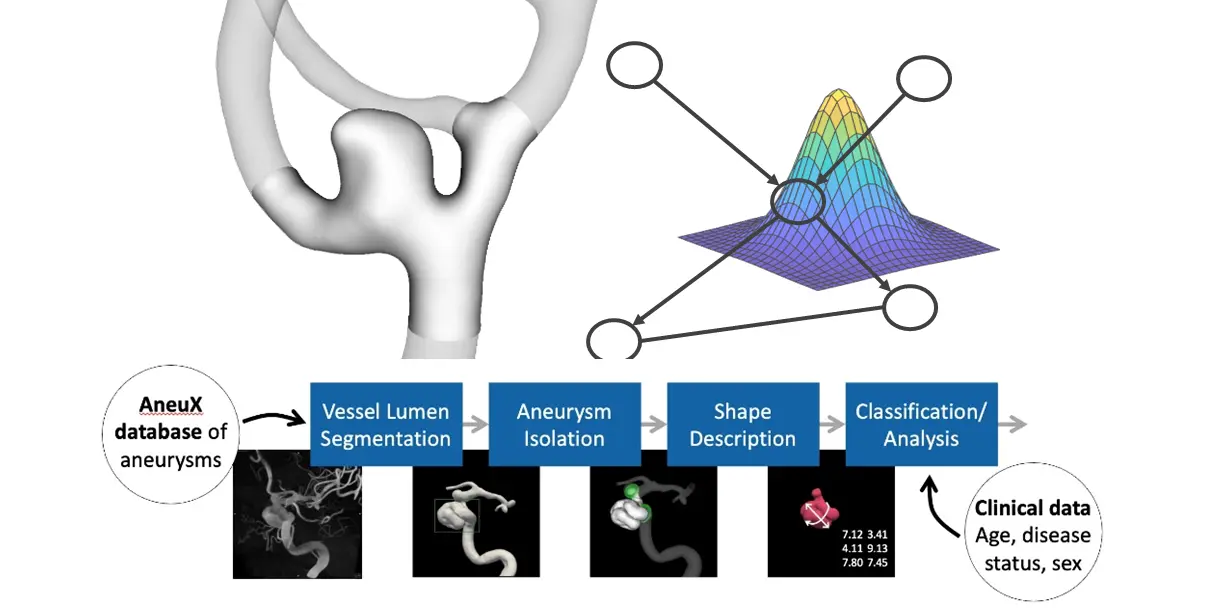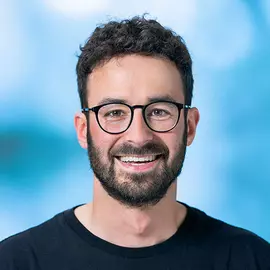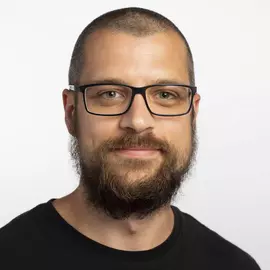Research Group Medical Image Analysis & Data Modeling

Introduction
Technological advances and the ongoing digitalization in healthcare are driving the systematic collection of medical data ever further. This data offers the opportunity to better understand diseases, support clinical decision making with evidence, and optimize medical processes.
Biomedical imaging is among the primary sources of information for many clinical applications and scientific endeavors. Its data-intensive nature necessitates dedicated algorithmic methods to process the images and uncover the information hidden within.
In addition to imaging data, a myriad of clinically relevant parameters is collected on patients, to monitor their health status, to describe pathologies, or to document physiological boundary conditions. Modeling of medical data using e.g., statistical models and inference enables disease prediction and increases understanding of pathomechanisms. Such data-based models are desired to be interpretable to serve as evidence-based tools in clinical practice.
The research group covers the whole range of medical data handling: from data acquisition to data processing and modeling. The goal of the group’s applied research is to translate data-based methods into clinical practice to the benefit of medical staff and ultimately patients.
Expertise

The research group has expertise and experience in:
- Biomedical imaging: magnetic resonance imaging, computed tomography, histological imaging
- Computer vision: image processing & analysis
- Machine learning & deep learning
- Bayesian inference & modeling
- Integration of domain knowledge: medical expertise, crowdsourcing of expert knowledge
Areas of application
Together with our collaborators we strive to solve problems via our applied and translational research. Various medical domains are covered, mainly:
- Stroke: ischemic & hemorrhagic (intracranial aneurysms)
- Cardio-vascular diseases
- Orthopedic/musculo-skeletal disorders
- Intensive care medicine
- Digital pathology
Cooperation with partners
We collaborate in various projects with academic, clinical and industry partners. Such local, national, and international institutions are:
- ZHAW Digital Health Lab
- University Hospitals Geneva: Neurosurgery Service
- University Hospital Zurich: Department of Neurology
- University Hospital Zurich: Department of Neuroradiology
- University Hospital Zurich: Institute of Intensive Care Medicine
- Balgrist University Hospital
- University of Zurich: Institute of Mathematics
- University of Zurich: Department of Quantitative Biomedicine
- Dalle Molle Institute for Artificial Intelligence (IDSIA) Lugano
- University of Applied Sciences and Arts Dortmund: Faculty of Computer Science
- International Stroke Genetics Consortium
- Roche
- Varian
Engagement in teaching
The members of the research group are involved in various teaching activities. Most notably, we are lecturing and supervising student projects/theses in the following programs:
- BSc in Applied Digital Life Sciences, especially Digital Health specialization
- MSc in Applied Computational Life Sciences
Team
-

ZHAW Life Sciences und Facility Management
Schloss
8820 Wädenswil -

ZHAW Life Sciences und Facility Management
Schloss
8820 Wädenswil -

ZHAW Life Sciences und Facility Management
Schloss
8820 Wädenswil -

ZHAW Life Sciences und Facility Management
Schloss 1
8820 Wädenswil -

ZHAW Life Sciences und Facility Management
Schloss 1
8820 Wädenswil